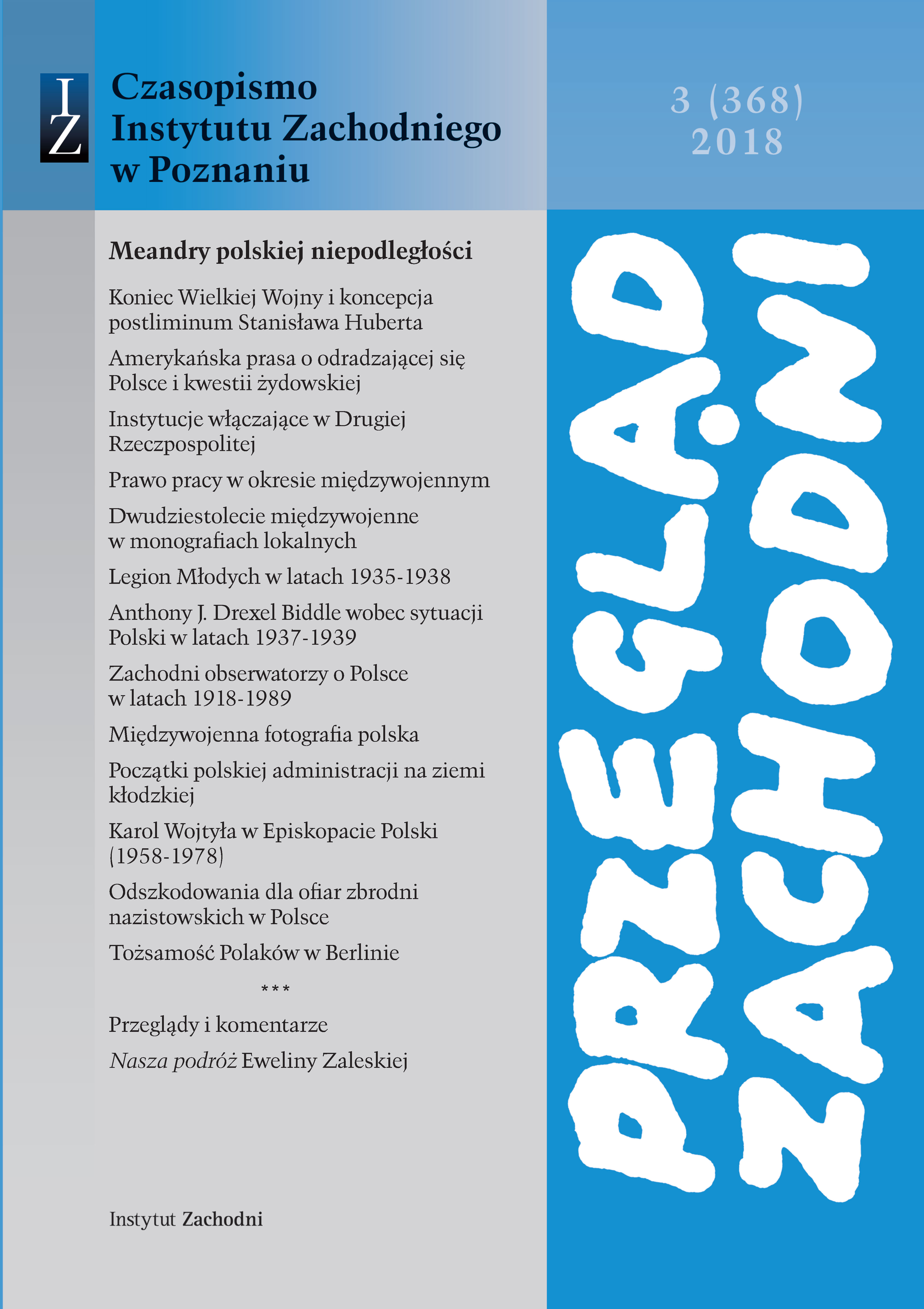Mit historyczny jako podstawa roszczeń. Uwagi na marginesie koncepcji postliminum Stanisława Huberta - w związku z 100. rocznicą zakończenia Wielkiej Wojny i powstania nowych państw w Europie Środkowej
Historical myth as a basis of restitution claims. Remarks on the margin of Stanisław Hubert’s concept of postliminum in connection with the centenary of the end of the Great War and the rise of new states in Central Europe
Author(s): Władysław PęksaSubject(s): International Law
Published by: Instytut Zachodni im. Zygmunta Wojciechowskiego
Keywords: law of nations; regaining independence by Poland; Treaty of Versaillels; history of Polish law; in the 19th and 20th centuries;history of Polish science in the 20th century;
Summary/Abstract: A study by Stanisław Hubert titled “The Partition and Rebirth of the Republic of Poland” (Rozbiory odrodzenie Rzeczypospolitej) appeared in print in 1937 in Lvov. The author, born in Wadowice and a pupil of Ludwik Ehrlich, recalled in his book the concept of application of the ius postliminii principle originating in Roman law, as a basis of the principle of restitution in force in the law of nations (today known as international law) and postulated its application to the interpretation of the issue of rebuilding the Republic of Poland in 1918. The aim of the present essay is a critical analysis of the main propositions and arguments of Hubert’s study. Although it did not resonate very broadly in the mainstream of the science of international law in Poland, some of the themes discussed in it appeared in the propaganda campaigns justifying Poland’s claims relevant to regained independence and also in the assessment of past events, especially the history of Polish lands in the 19th century. The propaganda arguments raised by Hubert can also be discerned in the discourse of other central European countries. The main research problem of the essay is to show that the arguments presented by S. Hubert were largely grounded in historical myths selected in such a way as to appear as indisputable ‘hard’ facts. The basic method of the present study is identification of Hubert’s major propositions and their critical assessment from the perspective of the science of the history of law in the 21st century. Such an approach allows to demonstrate which of his propositions stood the test of time and which can only be deemed as pure propaganda discourse.
Journal: Przegląd Zachodni
- Issue Year: 368/2018
- Issue No: 03
- Page Range: 7-14
- Page Count: 8
- Language: English, Polish

